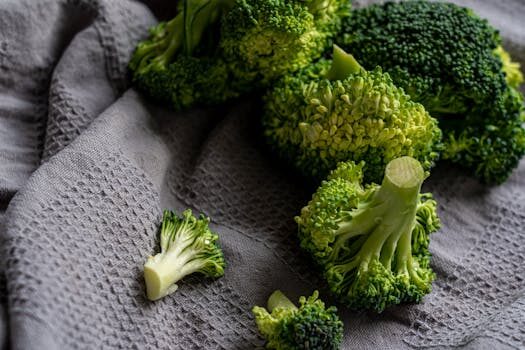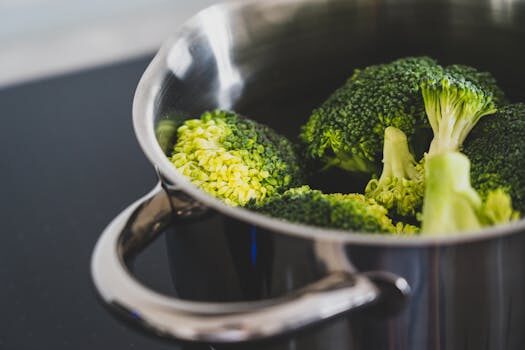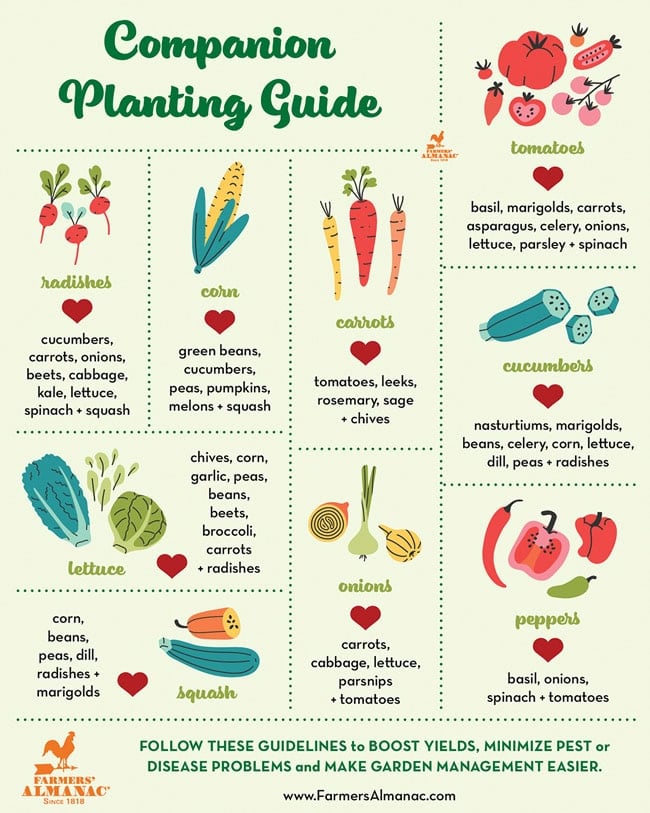Discovering the best companion plants for broccoli can transform your garden into a more productive and vibrant space. Companion planting is a time-honored gardening technique that leverages the natural relationships between plants to enhance growth, deter pests, and improve soil health.
Broccoli, a beloved cool-season crop, offers a perfect opportunity to experiment with these symbiotic plant relationships. By choosing the right companions, you can ensure your broccoli thrives, yielding a bountiful harvest to your garden.
What are the best companion plants for broccoli?
When it comes to cultivating broccoli, the presence of certain herbs, flowers, and vegetables can make all the difference. Aromatic herbs such as dill, oregano, and thyme are excellent companions, providing pest repellent properties that safeguard your crop. Flowering plants like marigolds serve a dual purpose by attracting beneficial insects and acting as a trap crop for pests.
Vegetables that have a harmonious relationship with broccoli include leafy greens like lettuce and spinach, which help maintain soil moisture and suppress weed growth. Additionally, the deep-rooting nature of beets and garlic can enhance soil structure and nutrient levels, proving advantageous for the shallow roots of broccoli.
It’s important to introduce a variety of these companions to create a balanced ecosystem. Doing so will ensure your broccoli has every opportunity to grow robustly and produce abundantly.
Why should you consider companion planting for broccoli?
Companion planting is far more than just an old gardener’s tale. It’s a strategic approach that can lead to healthier plants and higher yields. By introducing companion plants, you encourage a diverse array of insects to your plot, including pollinators and predatory species that keep pest populations in check.
The benefits extend below the soil surface as well, where different plants contribute to a more vibrant and balanced soil microbiome. This diversity of root systems and leaf structures can result in better resilience against diseases and adverse weather conditions, making your broccoli plants more robust.
Moreover, companion planting can reduce the need for chemical fertilizers and pesticides, aligning your gardening practices with a more environmentally friendly and sustainable approach.
Embracing companion planting means adopting a holistic view of your garden’s ecosystem. It’s about creating a symphony of plants where each contributes to the harmony of the whole, and broccoli serves as a central piece in this botanical orchestra.
What grows well with broccoli?
- Aromatic herbs like dill, oregano, and thyme repel pests and enhance flavor.
- Flowering plants such as marigolds attract beneficial insects and deter nematodes.
- Leafy greens, including lettuce and spinach, conserve soil moisture and prevent weeds.
- Root vegetables like beets and garlic improve soil structure and nutrient uptake.
Each companion plant brings its own set of advantages to the garden, creating a cohesive support system for your broccoli. It’s this intermingling of species that enriches the environment and fosters a more productive garden.

What are the bad companion plants for broccoli?
While many plants can be beneficial to broccoli, there are some you should keep at a distance. Large or sprawling plants like tomatoes and squash can overshadow broccoli, competing for sunlight, water, and nutrients.
Additionally, plants that are susceptible to similar pests and diseases, such as strawberries and other brassicas, may not be ideal companions. They can inadvertently create a hotspot for pest infestations or disease spread, negatively impacting your broccoli’s growth.
Being mindful of these antagonistic relationships is crucial in planning your garden layout. It helps prevent unnecessary competition and the proliferation of common ailments within your plot.
How to increase broccoli yield with companion plants?
To maximize your broccoli yield, it’s important to thoughtfully select companion plants that provide mutual benefits. By doing so, you create an environment where resources are optimized and plants support each other’s growth.
Herbs that repel pests naturally reduce the need for chemical interventions, while flowering plants boost pollinator activity, ensuring that every broccoli floret has the chance to develop fully. Moreover, companion plants that enhance soil structure and fertility contribute to the overall health and vigor of your broccoli plants.
Consistently pairing your broccoli with these beneficial companions not only increases yield but also ensures the production of high-quality, flavorful broccoli heads. The key is to foster a diverse and supportive garden ecosystem.
Here’s a quick video that showcases some companion planting strategies for broccoli:
What vegetables should you avoid planting with broccoli?
Just as there are plants that can enhance your broccoli’s growth, there are those that can hinder it. Vegetables like peppers, eggplants, and tomatoes should be avoided as they can attract pests like aphids and whiteflies that are harmful to broccoli.
Similarly, other members of the brassica family, such as cabbage and kale, should not be planted too close to broccoli. This is because they can deplete the soil of the same nutrients and attract the same pests, making it more challenging for all the crops involved to thrive.

Understanding which vegetables to keep away from your broccoli can be as crucial as knowing which to plant nearby. It’s a delicate balance that, when struck, leads to a healthy and abundant garden.
What are the benefits of companion planting for broccoli?
Companion planting for broccoli offers a suite of advantages that can enhance your gardening experience and the productivity of your plot. In addition to the pest control and soil improvement benefits mentioned earlier, companion planting can also optimize garden space and increase biodiversity, leading to a more resilient garden ecosystem.
Furthermore, by attracting a range of beneficial insects, you promote a natural balance that helps maintain the health of your garden. Companion plants can also provide shade or support, creating microclimates that cater to the needs of your broccoli plants.
Ultimately, the benefits of companion planting are holistic, touching upon every aspect of garden health and productivity. It’s an approach that not only nurtures your broccoli but also contributes to the overall well-being of your garden.
Companion planting inquiries for broccoli gardeners
What are the best companion plants for broccoli?
The top companions for broccoli include aromatic herbs like dill and oregano, flowering plants such as marigolds and nasturtiums, and vegetables like lettuce and spinach. These plants help deter pests, attract beneficial insects, and contribute to a nutrient-rich soil environment.
When selecting companions, consider the specific needs and benefits each plant brings to your garden. The right mix can significantly impact the health and yield of your broccoli.
Why should you consider companion planting for broccoli?
Companion planting is a natural way to enhance garden productivity and health. It allows for better pest management, improved soil conditions, and optimized resource use, all of which contribute to a thriving broccoli crop.
By incorporating companion plants into your garden, you create a self-sustaining ecosystem that supports the growth of all your plants, not just broccoli. It’s a holistic approach that aligns with sustainable gardening principles.
What grows well with broccoli?
Broccoli flourishes alongside a variety of herbs, flowers, and vegetables. Plants like marigolds, dill, lettuce, and beets are known to complement broccoli well, promoting a healthy and productive garden.
These companion plants provide benefits ranging from pest control to soil enhancement, making them invaluable allies in your quest for a lush broccoli harvest.

What are the bad companion plants for broccoli?
Certain plants should be kept away from broccoli to prevent competition and pest infestations. Avoid planting it near tomatoes, peppers, and other brassicas, which can attract pests and diseases that negatively affect broccoli.
Understanding these incompatible pairings is key to maintaining a harmonious and productive garden space.
How to increase broccoli yield with companion plants?
To increase your broccoli yield, strategically choose companion plants that provide mutual benefits. Herbs that repel pests, flowering plants that attract pollinators, and vegetables that improve soil conditions can contribute to a more abundant broccoli harvest.
Proper companion planting not only boosts yield but also enhances the overall health and quality of your broccoli.
What vegetables should you avoid planting with broccoli?
When planning your garden, keep broccoli away from vegetables such as peppers and eggplants, which can attract harmful pests. Also, avoid other members of the brassica family, like cabbage, which compete for the same nutrients and are prone to the same pests.
Recognizing which vegetables to exclude can be crucial for the success of your broccoli crop.
What are the benefits of companion planting for broccoli?
The benefits of companion planting with broccoli are wide-ranging, from improved pest management to better utilization of garden space. This approach increases the biodiversity of your garden, leading to a more resilient and productive environment.
Ultimately, companion planting supports the overall well-being of your garden while nurturing your broccoli plants.
 Best companion plants for onions: use these flowers, herbs and vegetables for better onion crops
Best companion plants for onions: use these flowers, herbs and vegetables for better onion crops
